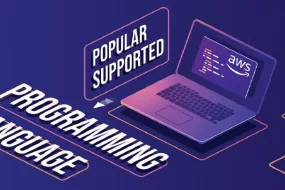
Git: The Paradigm Shift in Code Collaboration
A Distributed Version Control System
Git, an innovative and distributed version control system, has transformed the software development landscape. Unlike traditional centralized systems, Git grants developers the freedom to work independently on their local repositories. This distributed nature allows them to branch out, experiment, and seamlessly merge changes, enhancing collaboration and code quality.
Unleashing the Power of Branching and Merging
One of Git’s standout features is its robust branching and merging capabilities. Developers can effortlessly create branches to work on specific features or bug fixes, allowing for parallel development. This promotes a more efficient and organized development process, as multiple team members can work on different aspects of a project simultaneously. Git’s intelligent merging algorithms ensure that changes from different branches merge seamlessly, minimizing conflicts and preserving code integrity.
Effortless Collaboration with Remote Repositories
Git’s distributed nature is further amplified by its support for remote repositories. Developers can easily collaborate with their peers, even across different geographical locations. By pushing and pulling changes to and from remote repositories, teams can stay in sync, share code, and review each other’s work. This fosters a collaborative and efficient development environment, enabling teams to deliver high-quality software faster.
SVN: A Centralized Version Control Solution
Centralized Code Management
While Git’s distributed approach has gained significant popularity, SVN remains a reliable and widely used centralized version control system. SVN centralizes code storage, making it suitable for projects with a linear development process or when a single repository is preferred. SVN offers robust functionality for versioning, conflict resolution, and code history tracking, enabling teams to effectively manage their codebase.
Streamlined Project Management
SVN’s centralized nature simplifies project management by providing a single source of truth for the entire team. Every team member can access the latest version of the code from a central repository, ensuring consistency and reducing the chances of code discrepancies. Additionally, SVN’s access control mechanisms allow administrators to define fine-grained permissions, ensuring that only authorized individuals can make changes to the codebase.
Choosing the Right Version Control System
When considering Git and SVN, it’s essential to assess the specific needs of your development team and project requirements. Git’s distributed nature and robust branching model make it ideal for projects that prioritize flexibility, collaboration, and rapid iteration. On the other hand, SVN’s centralized approach and simplicity make it a suitable choice for projects with linear development processes or a focus on centralized code management.
5 FAQS
FAQ 1: What is version control and why is it important for collaboration?
Version control is a system that allows multiple users to collaborate on a project by managing and tracking changes to files and code over time. It enables developers to work simultaneously on different features or branches, merge their changes seamlessly, and track the history of modifications. Version control ensures that everyone is working on the most up-to-date version of the project, reduces conflicts, and provides a safety net for rolling back changes if needed.
FAQ 2: What are the benefits of using version control for code management?
Using version control for code management offers several benefits. It provides a centralized repository where all code changes are stored, making it easy to track and review modifications. It enables developers to work independently on different branches and merge their changes efficiently. Version control also enhances collaboration by providing a platform for team members to share their work, provide feedback, and resolve conflicts. Additionally, it helps in maintaining a clean and organized codebase.
FAQ 3: What are the different types of version control systems?
There are two main types of version control systems: centralized and distributed. Centralized version control systems, such as SVN (Subversion), have a central server that stores the repository, and users check out files from that server. Distributed version control systems, such as Git, create a complete copy of the repository on each user’s local machine, allowing for offline work and faster operations. Both types have their advantages and choosing the right one depends on the specific needs of your project.
FAQ 4: Can version control handle different file types besides code?
Yes, version control systems can handle different file types besides code. While they are commonly used for managing code repositories, they can also handle various types of files, including documentation, images, configuration files, and more. Version control systems are designed to track changes to any file, regardless of its format. This flexibility allows teams to collaborate on projects that involve different types of files and ensures that all modifications are tracked and recorded.
FAQ 5: How does version control help with code review and auditing?
Version control systems provide valuable tools for code review and auditing processes. When working on a collaborative project, developers can create separate branches for their changes and submit them for review. Team members can then review the code, provide feedback, and suggest improvements directly within the version control system. Additionally, version control logs all changes, including who made them and when, which is helpful for auditing purposes and ensuring accountability in the development process.
Conclusion
In the world of software development, version control systems are indispensable tools that empower teams to collaborate effectively, manage code efficiently, and deliver high-quality software products. Git and SVN, each with its unique approach, offer developers flexible options to meet their project’s needs. Whether you embrace the distributed power of Git or the centralized control of SVN, investing in a robust version control system is a crucial step towards optimizing your development workflow and ensuring the success of your projects.
Advertisement










